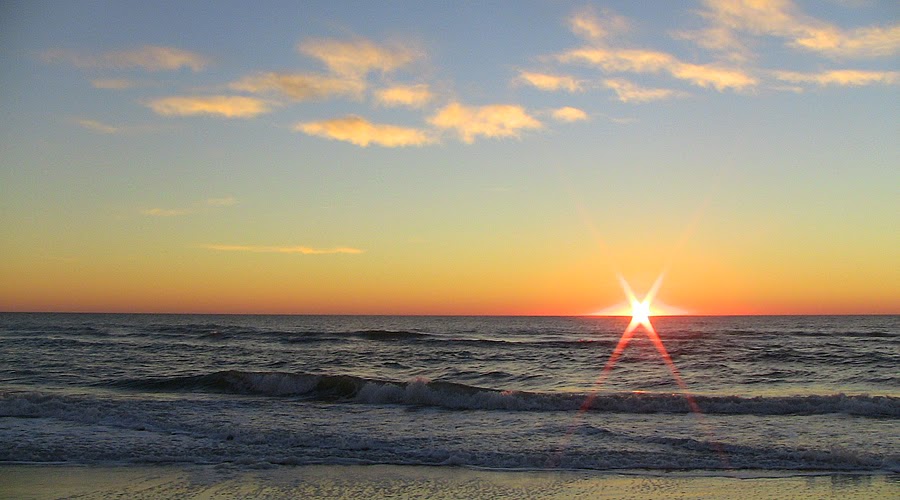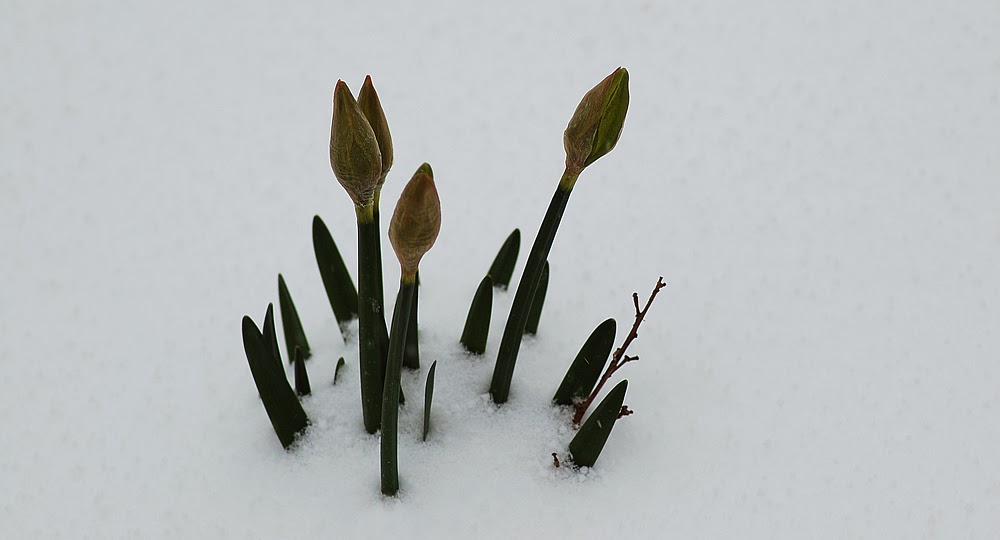Man is born broken. He lives by mending. The
grace of God is glue.
- Eugene O'Neill
I always liked this quotation and the concept of God
being the glue in our lives because it makes sense to me that our Higher Power
connects all of us. This quotation also seems to be a profoundly apt
description of original sin. But are we really born damaged and needing
salvation that can only come from something outside ourselves?
I recently had a conversation with a few friends about
whether we believed in original sin or not. One person made a good case for
original sin. She said that an infant is all ego. They only know their own
immediate needs and that we all have some of that innate ego selfishness that
remains with us throughout our lives. This, she said, is our original sin.
My response was that all creatures including humans are
hardwired for survival so an infant only knows to cry demanding food and
attention because their first instinct is to survive. This is why humans are
innately competitive animals. So is that original survival instinct sinful? I
have been giving this some additional thought.
If our primary imperative is to survive, the second is to
understand our experiences that we might cope with or adapt to them. The third
imperative is to be in relationship with someone or something outside our
selves. As we grow up we learn that our survival is connected to the survival
of others. We are by our nature social and symbiotic animals so we spend our
lives managing our sense of belonging. Finally, the fourth imperative is
to develop our ability to weigh calculated risk against possible reward. There
is no intrinsic sin in any of these primal directives.
It might be helpful at this point to have a common
definition of sin. Here is what the dictionary says:
1. transgression of
divine law: the sin of Adam.
2. any act regarded
as such a transgression, especially a willful or deliberate violation of some
religious or moral principle.
3. any
reprehensible or regrettable action, behavior, lapse, etc.; great fault or
offense: It's a sin to waste time.
All these definitions describe sin as an intentional act.
It is behavior done with an awareness of its potential harm. It is to willfully
ignore the immoral nature of something we are about to do. Sin is any choice we
make to intentionally disregard the foreseeable negative consequences of our
actions.
Several years ago there was a best seller that suggested
that everything we know about life we learn in kindergarten. There is a lot of
merit to that theory. During the first five years of life we learn an enormous
amount of information. Most importantly we learn about cause and effect. We
come to understand that our behavior has consequences.
We discover that we have these things called feelings and
so do other people. We find out that when we please others we are rewarded.
When we displease others we are punished. Sometimes pleasing one person
displeases another. Sometimes pleasing our selves is risking punishment. We
learn to choose between right and wrong. We learn how to sin by trial and error
and from the example of others. None of these things describe a state of
original sin, of intentionally bad choices from the time of birth.
Some might say that if we are not born in a state of
original sin, we must be born in a state of grace – in God’s good favor. If we
are born in a state of either sin or grace, the inference is that we are born
already bearing God’s judgment as a heavy burden, destined to spending our
whole lives seeking approval from or hiding from the wrath of something outside
of ourselves.
In that conversation I mentioned, another friend reminded
us that God is within us, and therefore never separate from us. God is present
in and part of every fiber of our being. I say that this is why we are not born
inherently bad or good, that original sin is a mistaken concept. We are
actually born in a state of original potential. Even the child who is born into
the worst circumstances, whether they be the result of a rape, or they are born
into a situation of physical impairment, dire poverty, or violence; even they
have value and possibility.
There are some who surmount the challenges they encounter
and others who succumb to them. But God is present at all times; not as a magician
who can fix things, but as the transforming power of Love. And, we all have the
same potential to grow into an awareness of that Love.
We all have the same potential to make negative or
positive choices. Just because we get in the habit of tending towards one or
the other does not mean that at any time we do not have the ability to turn in
the other direction. Our physical and emotional survival depends on our ability
to make good choices. It is not until we learn that all our decisions have consequences,
and that making no decision is actually a decision, do we realize that we have
great control over our own fate. When we learn that God’s Love is constant –
never wavering – we learn that we can repent our mistakes and commit to making
our deeds match our best intentions.
The imperative to belong is not just born out of
biological symbiosis or emotional neediness. It is an inborn calling to return
to the original state of potential where we were open to the infinite
possibilities available in our inherent connection to that of God in all
creation. When we give ourselves over to those possibilities we are born again.
There resides in each of us a small seed of awareness of God’s ever present
Love. As that awareness grows so does our confidence to love others the way God
loves us: without conditions.
Life’s circumstances and the choices we make within them
may make us feel broken. But we are never unfixable because God is the glue
that will transform our suffering into mending. From start to finish that glue
is available if only, as Stephen Stills once sang, you will “love the one you are with.”







